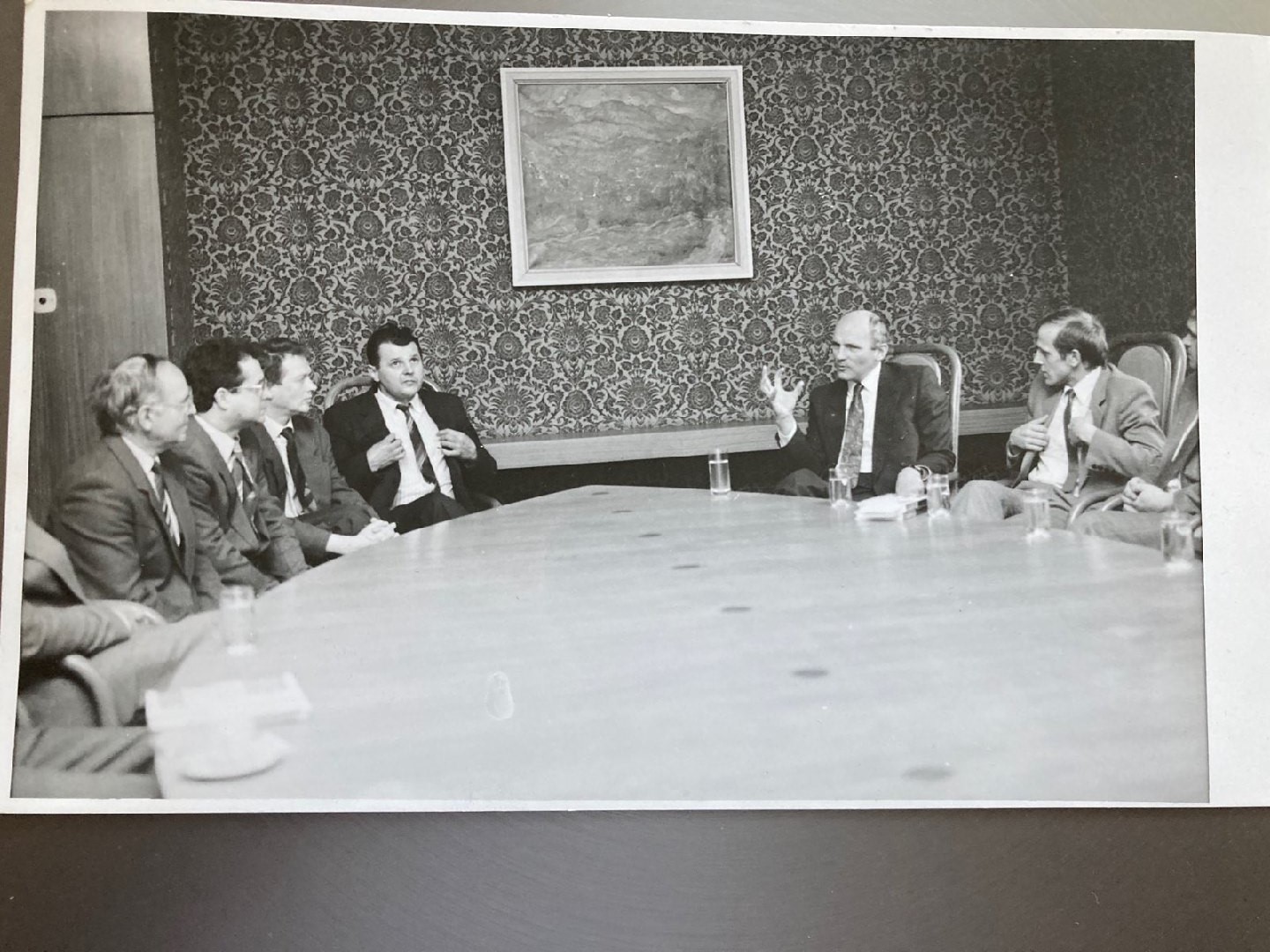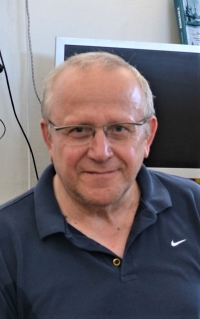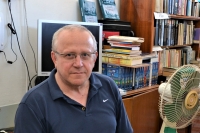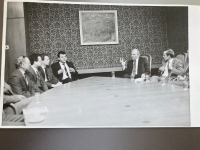It is important to dream and to try to make as much of those dreams come true as possible

Download image
Pavol Abrhan was born on July 25, 1959 in Vráble. Both his parents and grandparents come from the village of Vlkas in the district of Nové Zámky. The families were engaged in agriculture and farmed on their own small estates. Pavel’s father was a teacher, his mother had an economic education. Mother’s father worked as a church father. In 1962, the parents and little Pavel moved to Nové Zámky. In 1964, his sister Katarína was born. The collectivization significantly affected both families. Grandfather Vincent was called a kulak because he did not want to join the cooperative. But in the end, after being threatened, he agreed. Everything had to be handed over: the land, the cows and the horses. After that he just worked on the cooperative and herded the cows, which was also a humiliation for him. Pavel’s father had to leave education and took a job as a clerk in the Restaurants and Canteens in Nové Zámky. The same threats were also made against his mother’s family at that time. Eventually, her family also decided to join the cooperative. In the sixties, Pavel was a member of a scout troop. He liked to go, but after 1968 scouting was banned again. His parents perceived the developments after the occupation of Czechoslovakia negatively, but they took note that these were the times. They spoke freely at home, they would not give up their faith at any cost. From an early age, Paul attended church with his parents and received an upbringing in the spirit of the traditional Roman Catholic faith from both parents’ families. In his teens, he was greatly influenced by chaplains who invited him to be a mini-chaplain. He had long conversations with them and gradually became aware of his faith and life values. This period significantly shaped his later attitudes and direction in life. A friend recommended the building trade school in Nitra and Pavol began to study the field of Technical Equipment of Buildings. He commuted daily from Nové Zámky to Nitra. On weekends he would meet the priests, they would go for a beer or a kofola together, or after mass they would stay at the rectory and talk for hours. Through the priests he got access to books, mostly with religious themes, also to the first samizdat books. After high school, he graduated from the College of Agriculture. Already during his studies he got acquainted with František Mikloško, Vladimír Jukl, Silvester Krčméry from the Catholic dissent and the secret church. Meetings with them had a profound influence on Pavel. Samizdat and banned literature were also distributed through these meetings. This was also how the pilgrimage to Šaštín was organised in 1984. The usual Night Adoration was changed into the Youth Night Programmes, where the young people gave their speeches. For Nové Zámky, Pavol wrote the scripts for the speeches. In 1985, a pilgrimage to Velehrad took place, and in the same year Pavol organized a youth meeting in Nové Zámky He has been interrogated several times by state security. On 25 March 1988, Pavol took part in the Candlelight Rally in Bratislava. He was constantly under surveillance by the State Security and after the Velvet Revolution he learned that a file was kept on him by the STB as an enemy person. At home, he typed banned books on a typewriter. He used to go to Bratislava at night to buy samizdat books from Silvester Krčméry and distribute them. In everything he did, he had the support of his parents and grandparents. In November 1989, the canonization of Agnes of Bohemia took place in Prague. With a group of Catholics around Augustín Navrátil, he managed to travel to Rome. He felt that the circle was closing around him and therefore seriously considered emigrating. However, when he saw from Rome how the Berlin Wall had fallen, he felt that things were in motion and decided to return. They crossed the Austrian-Slovak border on 17 November 1989. The next day he was already giving a speech in the square in Nové Zámky and shortly afterwards in Trnava. From then on, Pavel began to move in the open public space, became secretary of the KDH, founded clubs and began preparations for the first free elections. Until 2016 he was an active politician, he was a member of the National Assembly for fourteen years. Nowadays, he tries to devote as much time as possible to his mother and the youth, whom he leads to his favourite sport, football. He is still interested in politics, although he no longer has political ambitions. He finds time for books and meetings with František Mikloško, as well as with other former colleagues from the parliament.


